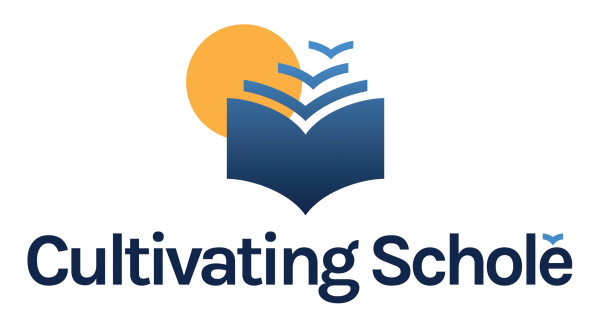As the 2020-21 school year begins, we are in the midst of our five-year vision, “Called to Cultivate.”
Our goal is to improve strategic areas of our school and culture, ultimately seeking to bring out the extraordinary in each of our students.
As the 2020-21 school year begins, we are in the midst of our five-year vision, “Called to Cultivate.”
Our goal is to improve strategic areas of our school and culture, ultimately seeking to bring out the extraordinary in each of our students.

As a community, we’re pursuing more, we’re shepherding hearts and minds, and now we’re ready to reach even higher. This school year, our theme is Cultivating Scholé. As we intuitively implement our 6 Key Habits, we naturally pursue the wisdom of classical scholé rather than ideology found in a modern school. When we embrace the idea of scholé, we see that learning can be a fruitful and enjoyable activity rather than an obligation. At the heart of this concept, scholé is all about a love of learning – and we are all lifelong learners.
Join us in our 25th year as we go deeper, reach higher, and grow together.
The Greek idea of σχολη (scholé) originally simply meant “time free from labor” or “spare time.” Eventually, the concept was expanded to mean not just “spare time” but the content of that spare time; that is, what one should do with that spare time. For the Greeks, that meant time set aside for learning and discussing. It is from this sense that we derive the word “school,” for it is both the time of “learning” and the time “free from labor or work.” Leisure activities thus understood mean cultivating and using the innate, universal human faculties in the discovery and performance of truth.
They are activities that distinguished from “play” in that “play” or “amusement” is aimed only at pleasure, while “leisure” is aimed at truth and engaged in for its own sake. It is precisely the time of “musing” or thinking—not “a-musing” or not-thinking. Those leisure activities may include an array of practices including, thinking, reading, discussing, writing, etc.
Leisure activities, in sharp distinction from labor or work, consist of those things that men do because they are desirable for their own sake. They are self-rewarding, not externally compensated, and they are freely engaged in.
– Mortimer J. Adler
Though we might be tempted to think that the conflation of leisure with inactivity or amusement a modern error, even Augustine had to remind his audience that leisure was not “empty-headed inactivity,” but in “the quest or discovery of truth, both for a man’s own progress and for the purpose of sharing ungrudgingly with others. … No man is forbidden to pursue knowledge of the truth, for that is the purpose of legitimate leisure. … Thus, it is the love of study that seeks a holy leisure.”
Together we pursue a five-year vision for a thriving Cary Christian School